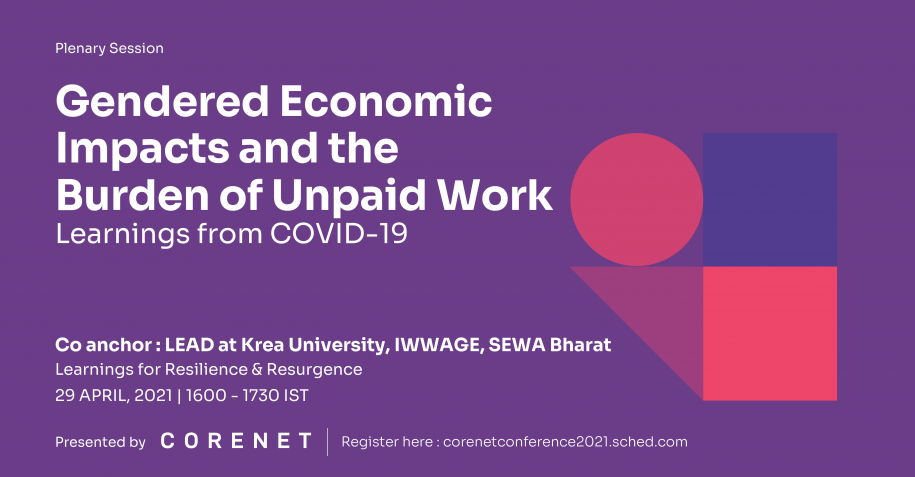Partners: CORE Net, IWWAGE, SEWA Bharat
COVID-19 has exposed and worsened existing economic gender inequalities and biases against women in the labor market. Although women’s participation and remuneration have always been much lower than men’s, it has further declined due to loss of employment, stress due to the additional burden of household work and child care, and loss of savings to pay for essential commodities. The lockdown further aggravated the situation, causing a shadow pandemic for women with reduced economic opportunities, reduced education, nutrition, and healthcare services, and increased gender-based violence.
LEAD anchored a plenary session along with IWWAGE and SEWA Bharat at the CORE Net Conference 2021. Bringing together collective learnings from more than research organisations from CORE Net as well as other experts, the conference provided a platform to share learning from the past year and discuss policy actions for building more resilient systems.
Speakers
Context Setting: Sharon Buteau, LEAD at Krea University
Sumita Kale, Indicus Foundation (Moderator)
Poonam Muttreja, Population Foundation of India
Deepthi Ravula, WE Hub, Government of Telangana
Neeta Hardikar, ANANDI
Sriraman Jagannathan, Women’s World Banking
The panel highlighted evidence from recent research on the gendered economic impacts of COVID-19, and solutions and opportunities for enabling women’s participation in the workforce.
Resources





